04-05-2022 | di COOPI
Mali. Health and nutrition assistance for crisis-affected populations
As of June 2021, COOPI - Cooperazione Internazionale is present in Mali with the project "Integrated responses to the health and nutrition needs of populations affected by the multidimensional crisis in Mali" with the support of the European Civil Protection and Humanitarian Aid Operations (ECHO). The project aims to improve access to and use of free, quality medical and nutritional care for crisis-affected populations in Central Mali, working in the districts of Markala and Djenné (Mopti region), Macina, Ségou, Bla and Tominian (Ségou region). COOPI medically assisted children under the age of 5, IDPs and their host populations, providing care in these areas affected by COVID-19, drought, nutritional emergencies and conflict.
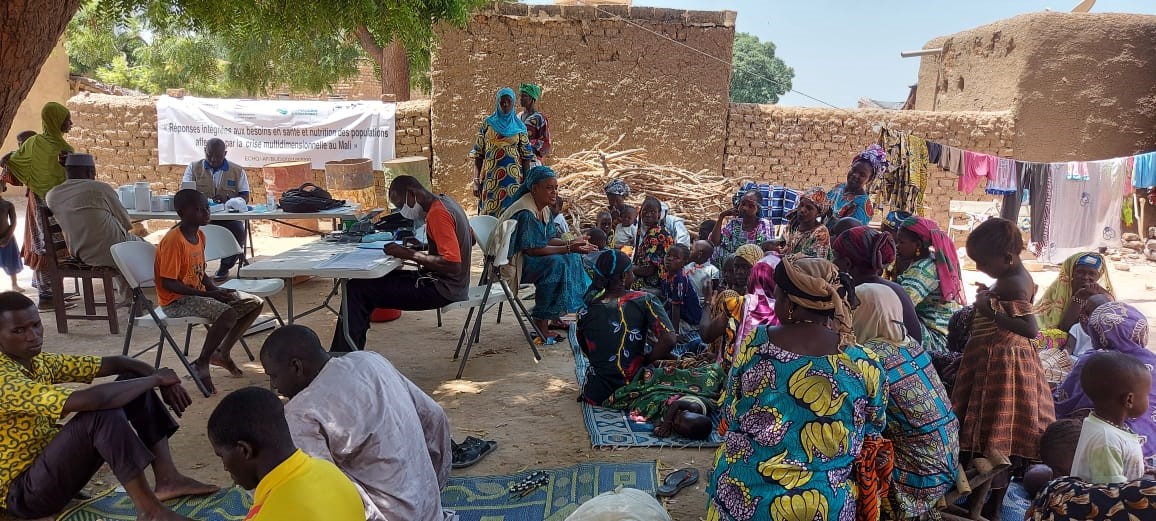
Multi-Purpose Mobile Teams
In order to facilitate access to primary health care by reducing the existing financial and geographical obstacles for IDPs, COOPI implemented 8 multi-purpose mobile teams (Équipes Mobiles Polyvalentes - EMP) operating in the health districts of Ségou, Markala, Macina, San, Djenné, Tominian and Bla. These EMPs provide free care services in cooperation with health facility authorities at local and regional levels.
From June to November 2021, the EMPs carried out 552 care visits to IDP sites, during which various examinations and checks were held, including:
- 14,031 curative consultations, including 4,069 for children under 5 years old
- 731 pre-natal consultations for pregnant women
- 3,047 vaccinations to children against various diseases, including 572 against measles
- 8,328 health screenings to children aged between 6 months and 5 years, 725 to pregnant women and 4,168 to lactating women
- 5,022 women of childbearing age were provided with Shakir bracelets and trained in the use of the tool
- 486 training sessions on food and nutrition issues for children and on COVID-19. These sessions were attended by 12,808 people (7,435 women and 5,373 men).
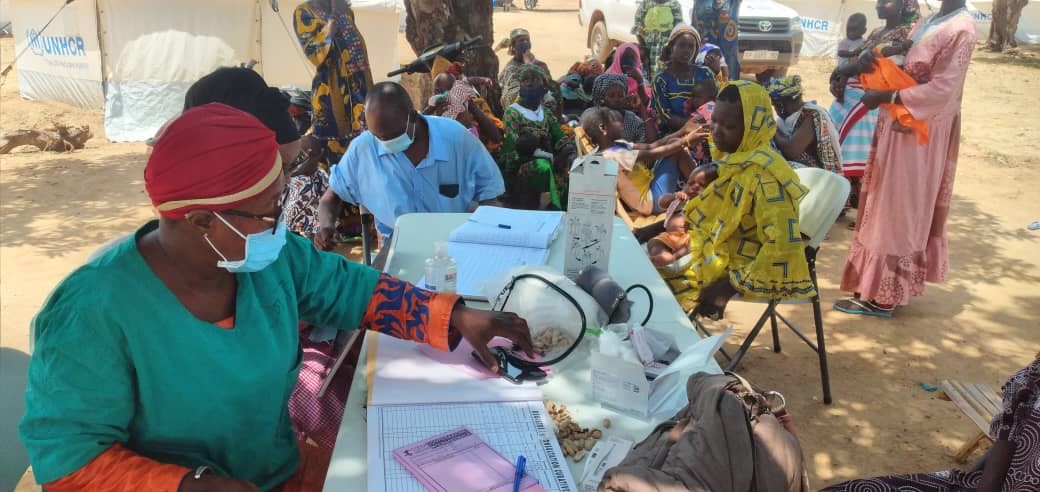
PB-mère training
In order to strengthen the continuity of acute malnutrition screening activities in the health districts, COOPI focused on the 'PB-mère' strategy, which consists of training and instructing mothers in the screening technique, the use of the Shakir bracelet and the search for possible oedemas. In this way, they will be able to identify signs of malnutrition in their child through early diagnosis, and if necessary, they will be able to refer the child to the community centre for initial confirmation. Also, 16,046 mothers were trained in the technique of measuring blood pressure and received advice on feeding, nutrition, family planning and contraception.
Thanks to this strategy, 537 children were screened from June to September. This was achieved thanks to regular PB-mère monitoring and the support of the community for the well-being of the children.
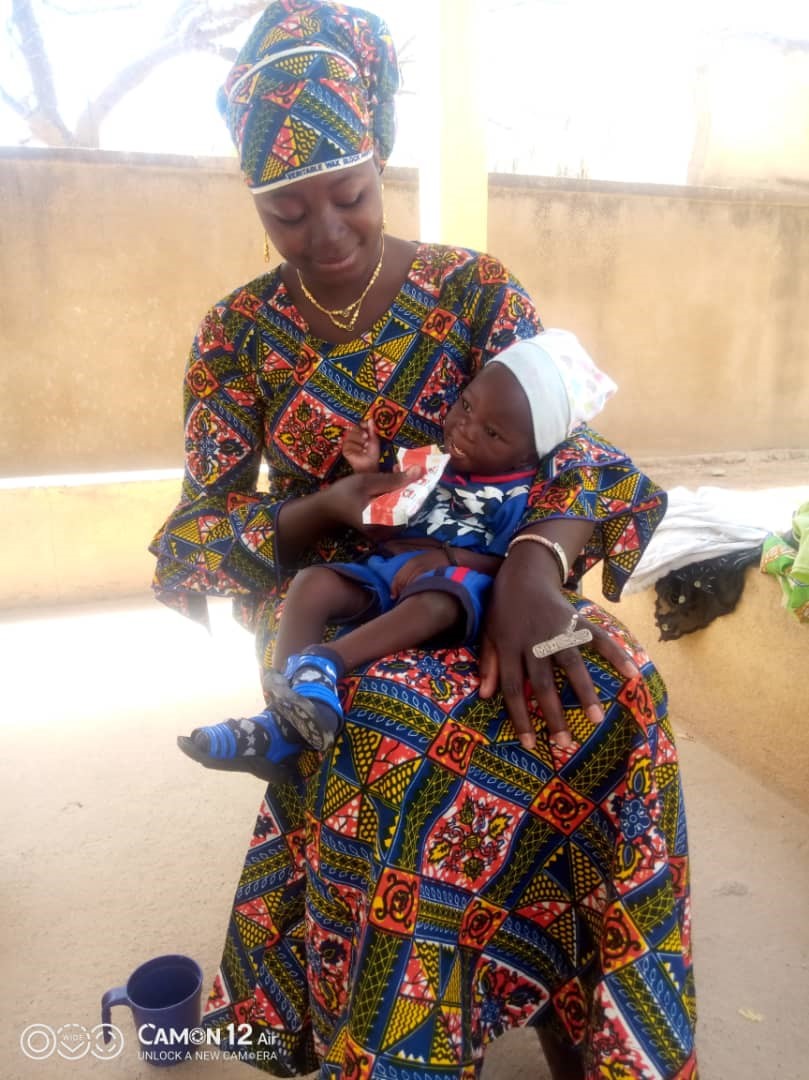
Managing acute malnutrition
From June to September 2021, active and continuous micro-screening of 73,975 children aged between 6 months and 5 years was carried out in all villages in the intervention areas, of which 2,960 were confirmed as suffering from acute malnutrition, hospitalised and assisted. The strategy used by this community network was "door-to-door" in the community. Monthly community meetings were organised with the Community Health Centre and health staff in order to capitalise on the activities carried out by the community actors during the project. This made it possible to collect data, take corrective measures, monitor and evaluate outcome indicators, share experiences and identify difficulties in implementing these activities. In addition, awareness-raising sessions were organised on exclusive breastfeeding, complementary feeding, feeding pregnant and lactating women and feeding the sick child.
Participation in assessments of RRM confirmed alerts
Concerning health in Rapid Response Mechanism (RRM) actions, COOPI participated in 16 multi-sectoral assessments in which the health/nutrition assessment grid developed by the CCS was used, following various population displacements in the areas of Ségou, Bla, Macina, San and Djenné. During these assessments, 1,289 newly-arrived IDPs in the intervention areas were assisted with medicines from emergency stocks. In addition, 300 women of childbearing age were selected according to their level of vulnerability to receive a dignity kit. The kits consisted of 3 WAX pages, 1 double sheet, 1 double mat, 1 kit of washable sanitary towels, 1 1-litre can of bleach, 1 1,000g pack of washing powder and 1 400g piece of large body soap. In addition, 108 antenatal consultations, 110 child vaccinations and 252 malnutrition screenings were conducted. COOPI participated in 8 RRM coordination meetings at regional level and 4 at national level.
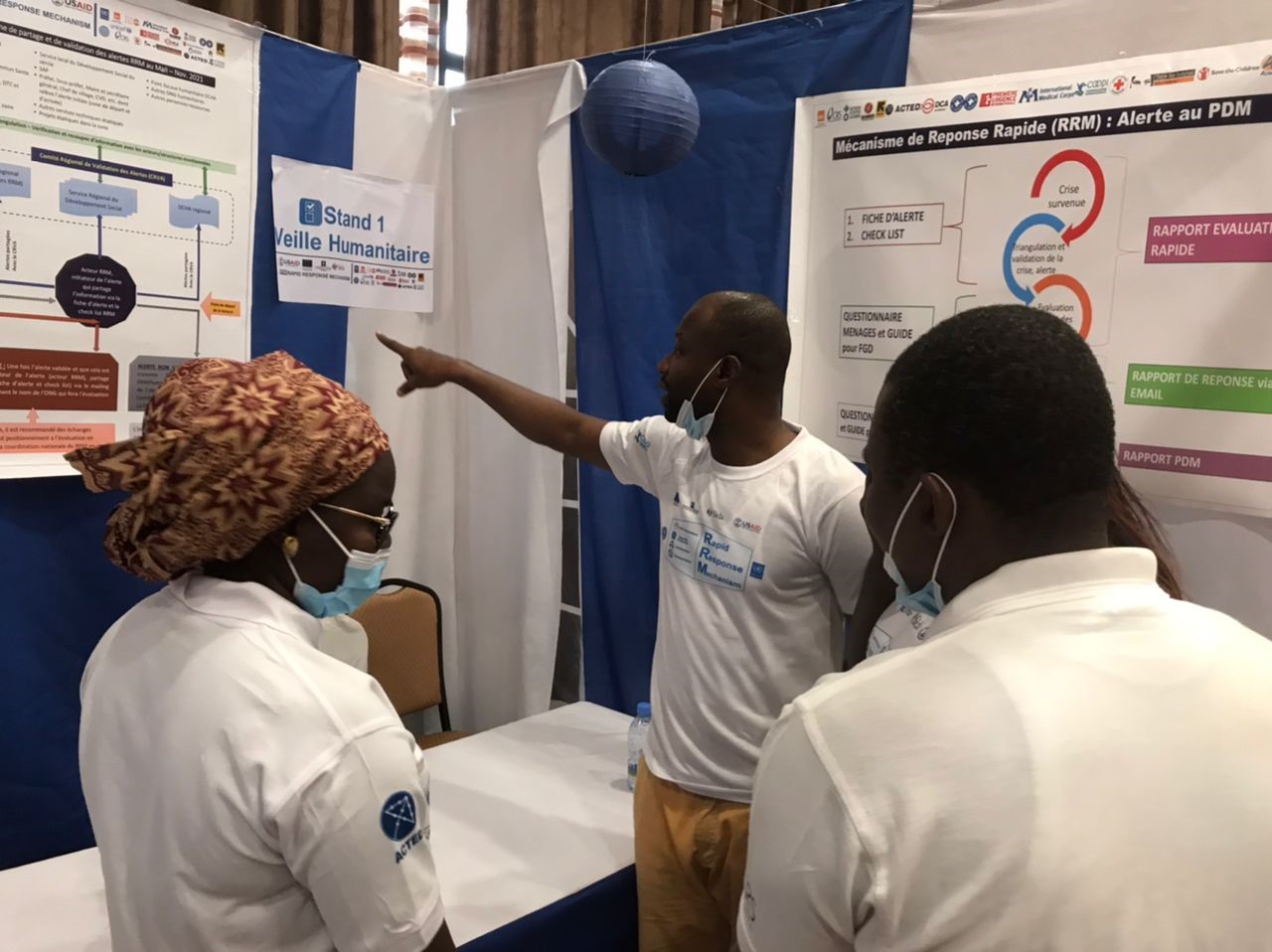
COOPI is committed day after day to fighting malnutrition, highlighting the need and urgency to counter the spread of the phenomenon and including and empowering the community.
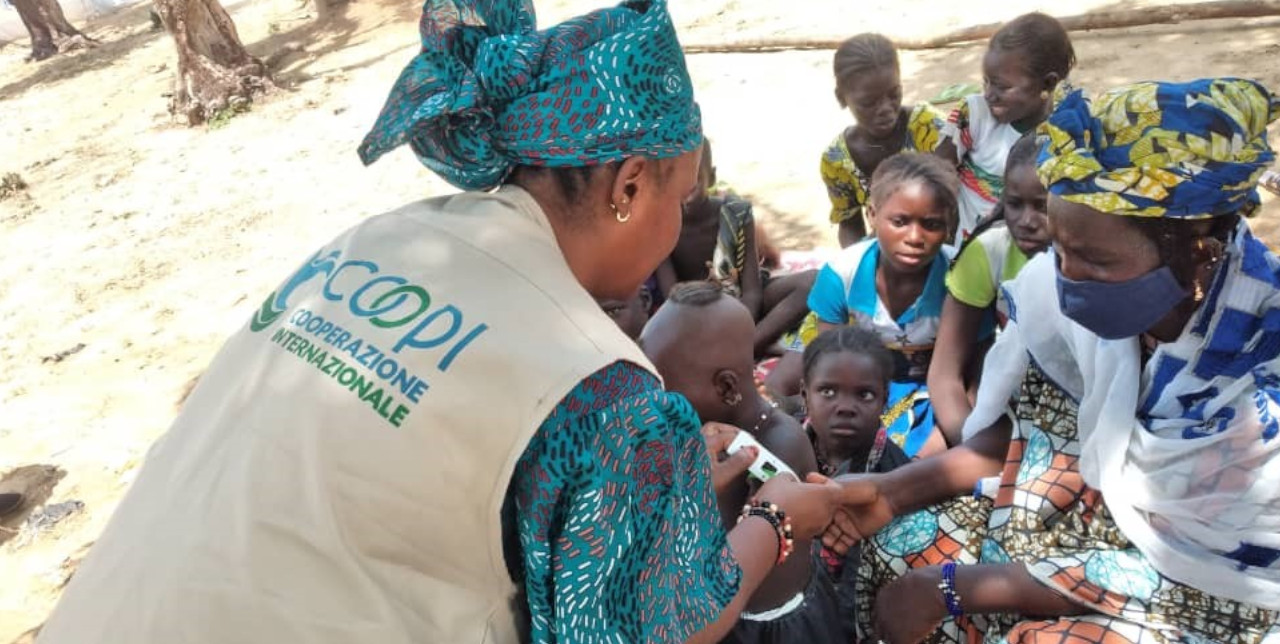



 Mali
Mali